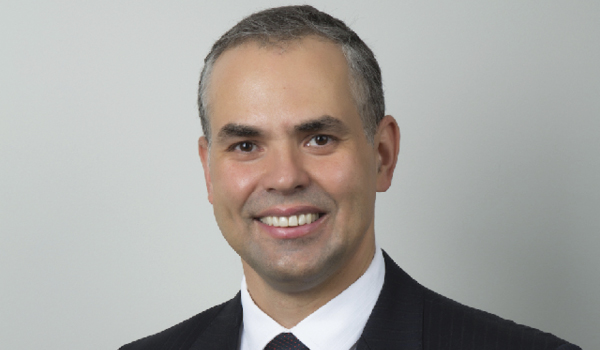Rogerio Branco: Powering the Supply Chain Team

Rogerio Branco is senior vice president, supply chain management, for Eaton, a power management company with 2015 sales of $20.9 billion across more than 175 countries.
Responsibilities: Global responsibility for indirect procurement, professional services and logistics. Functional global responsibility for direct procurement.
Experience: Director of operations and supply chain management for Eaton’s business in South America. Previous roles within Eaton’s finance, operations, and supply chain management functions at locations in Brazil, India, and the United States.
Education: Bachelor of Science in mechanical engineering, University of Sao Paulo, 1988; MBA, University of Campinas, Brazil, 1996.
I was first exposed to the supply chain function when completing due diligence for Eaton on a potential acquisition in China and a joint venture negotiation in India. I was responsible for the supply chain piece, and visited suppliers to validate their prices. I learned a lot.
For instance, the Chinese often negotiate not just to gain profit, but also because of employment. Even now, with an increase in private companies in China, their owners have profitability targets, but are worried about creating jobs as well.
In China, I also learned if there’s an issue, you talk and resolve it. Instead of drafting a 215-page contract that tries to predict every scenario, you compose a 10-page agreement of the principles, then move on.
One current challenge is driving alignment around priorities. Eaton operates 20 businesses around the world serving multiple industries and about 70,000 suppliers. Our mantra is that we are one supply chain, one team globally. I travel a lot and sit with the leaders of those 20 businesses to make sure I understand what they’re trying to do. I find a common thread and create a connection.
I came to Eaton with an engineering degree, but started in finance, implementing the first cost management system for a $500-million business. It had three major business lines: automotive, agricultural, and axles. Automotive was high volume, low mix, while agriculture was low volume, high mix with great product diversity.
Using the traditional method of calculating overhead, the plant divided overhead by labor hours, and applied it equally to all products to arrive at the cost and set a selling price. We thought we made a 20-percent margin in automotive, but in reality, it was 55 percent. In automotive, we could set up a machine and make 20,000 parts in one run. In agriculture, we could set up the same machine and run 50 parts.
It took about 18 months to first normalize prices, and then to grow the business. In five years, the business grew from $150 million to $600 million.
From that position, I moved to business development and analyzing deals. We couldn’t close the joint venture deal in India, and decided instead to go with a greenfield site. One hallmark of my career was building that plant. We hired approximately 185 employees from about 40 companies.
To bring together this diversity of cultures, I had to engage the team. Take safety glasses, for example. Eaton cares about safety, so we want employees to wear safety glasses. But nobody in India wore them. The first few times I walked the shop floor, people wore their glasses on top of their heads. I tapped their shoulder and told them to put the glasses on. I kept reinforcing it. By the time I left, wearing safety glasses had become part of the culture.
During my last year in India, I set behavioral goals rather than focusing on logistics or quality costs. I knew if employees behaved correctly, we’d achieve those hard goals. Well, they did. When I left, the plant was recognized as one of Eaton’s best new plants.
Another passion is not just getting the job done, but also making sure my team has the ability to get their jobs done.
The Big Questions
If you could go to the Olympics in one sport, what would it be?
Volleyball. I had to decide: play professional volleyball or go to college because there’s no college volleyball in Brazil. With volleyball, I wouldn’t have been able to control whether I got hurt.
If you could advise your 18-year-old self, what would you tell him?
Forget about money. Look for something in your life that’s going to make you happy, and then I’m sure you’ll be successful.
